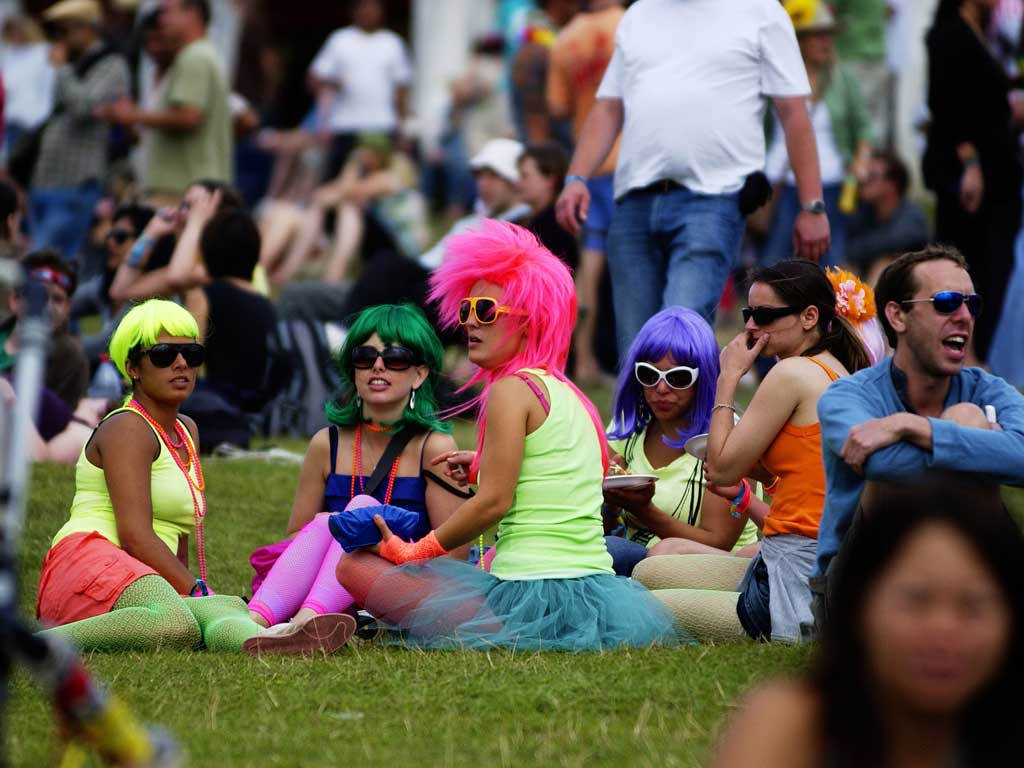Have the good times rolled for music festivals?
Golden-age over as financial pressures force many smaller events to cancel

Your support helps us to tell the story
From reproductive rights to climate change to Big Tech, The Independent is on the ground when the story is developing. Whether it's investigating the financials of Elon Musk's pro-Trump PAC or producing our latest documentary, 'The A Word', which shines a light on the American women fighting for reproductive rights, we know how important it is to parse out the facts from the messaging.
At such a critical moment in US history, we need reporters on the ground. Your donation allows us to keep sending journalists to speak to both sides of the story.
The Independent is trusted by Americans across the entire political spectrum. And unlike many other quality news outlets, we choose not to lock Americans out of our reporting and analysis with paywalls. We believe quality journalism should be available to everyone, paid for by those who can afford it.
Your support makes all the difference.The happy daze is coming to an end, it seems. After a decade of ever increasing numbers of music festivals and ever expanding crowds, it appears the party is winding down, with 12 festivals already cancelled this year.
Everything from child-friendly boutique weekends to full-scale heavy rock events are feeling the chill wind. And while the smaller events have been among the first to fall, large-scale former successes like Sonisphere and the Big Chill have also gone.
The two most recent casualties have been the Cloud 9 festival in Cheshire and Winchester's Golden Down. These, along with the Rough Beats festival in Yorkshire, were cancelled last month, with Cloud 9's organisers saying that "financial pressures" are having a severe effect on small independent festivals.
Sonisphere, a three-day festival in the idyllic surroundings of Knebworth Park in Hertfordshire, announced that it was cancelling, due to the "weak economy and some bad luck". Its normal audience of rock fans will miss the chance to see some of the biggest names in music, such as Queen, Kiss, and Faith No More. The festival, which is also staged in several other European countries, has had to cancel in Greece, Turkey, Italy and Sweden.
But it's not just rock music fans who will be bereft of a place to party this year. The Big Chill dance festival cancelled when 2012 had barely begun, its organisers citing "artist availability" close to the Olympics as a determining factor.
Even those festivals that are going ahead this year are admitting to having difficulties. The veteran festival organiser Vince Power last week confirmed slow ticket sales for his Hop Farm Festival, despite boasting Bob Dylan as a headline act.
Other festivals that have cancelled include Titanic Lockdown featuring New Order and Happy Mondays; LadyRock festival featuring KT Tunstall; Pride House, featuring Elton John; and the Trowbridge Festival with Alasdair Roberts.
Jamie Fullerton, features editor at NME, said: "A lot of these smaller festivals have been going for a long time and it's hard to step away from the project before it reaches crisis point, which is why festivals end up getting pulled after committing to their line-ups.
Mr Fullerton said it's now down to festival organisers to gain exclusivity to the big acts before their peers: "You know if you spend however many millions it is to get the Stone Roses, your festival will sell out."
Simon Taffe, who founded the End of the Road festival six years ago, said the lack of the Glastonbury Festival will actually have a negative affect on other festivals: "A lot of people decided there was an opportunity this year because there was no Glastonbury, thinking there was a gap there. I actually think Glastonbury helps other festival ticket sales. It focuses the attention on festivals as a whole. I think if as a festival you survive this year, you'll be OK."
John Giddings, organiser of the Isle of Wight Festival, which last year featured Paloma Faith, believes the death of the music festival is greatly exaggerated: "If you do the right thing for your genre ... there's still a market out there. We've got 50,000 people going this year. Festivals are a rite of passage for young people, and even older people go now. When I started out, people of 40 didn't go to music festivals. That's all changed now."
Join our commenting forum
Join thought-provoking conversations, follow other Independent readers and see their replies
Comments